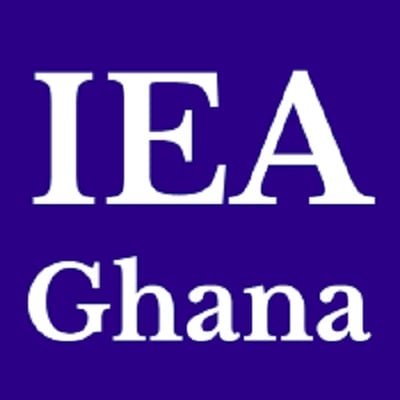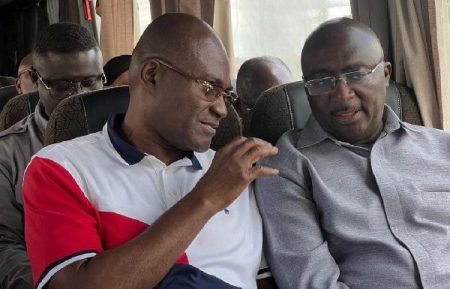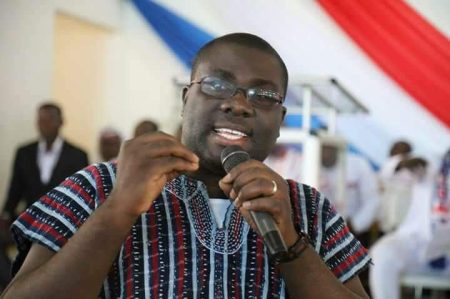The Institute of Economic Affairs (IEA) has strongly criticized the recent Memorandum of Understanding (MoU) extending Tullow Oil’s petroleum licenses in Ghana to 2040. The IEA argues that this extension, far from reflecting good governance principles of transparency, probity, and accountability, undermines them. The think tank points to the current state of affairs where the relationship between Tullow and Ghana has been marked by disputes, including international arbitration proceedings over substantial tax liabilities, as evidence of a fundamentally flawed operational dynamic. This history, the IEA contends, raises serious questions about the advisability of extending the existing agreement and locking in a potentially problematic relationship for another fifteen years. Instead, the IEA advocates for a comprehensive overhaul of Ghana’s petroleum governance framework, suggesting a shift away from the current model towards one that better serves the national interest.
Central to the IEA’s criticism is the context of Tullow’s existing operational relationship with Ghana. The IEA highlights two specific instances of significant tax disputes. The first involves a US$320 million Branch Profit Remittance Tax (BPRT) liability assessed by the Ghana Revenue Authority (GRA) against Tullow for the period 2012-2016. Tullow challenged this assessment through international arbitration, refusing to comply with the GRA’s findings. The second dispute relates to an additional US$387 million in tax liabilities levied by the GRA, stemming from disallowed interest deductions between 2010 and 2020, which Tullow is also contesting. These ongoing disputes, according to the IEA, cast a long shadow over the existing Petroleum Agreement and raise serious concerns about Tullow’s commitment to fulfilling its financial obligations to Ghana.
The IEA argues that extending Tullow’s licenses under these circumstances would be a grave mistake, exacerbating existing problems rather than resolving them. The IEA expresses concern that the MoU solidifies a flawed arrangement, effectively embedding existing tensions and disputes into the future of Ghana’s petroleum sector. The think tank urges the government to immediately suspend the extension process and instead focus on restructuring the governance framework governing the relationship between Ghana and its petroleum partners. This restructuring, the IEA suggests, should prioritize national interests and ensure that Ghana receives a fair share of the benefits from its oil resources.
The IEA points to the experiences of other countries that have moved away from traditional concession agreements, often inherited from colonial eras, towards more contemporary models like service contracts. These models emphasize state-led governance and offer greater control over resource management and revenue generation. The IEA specifically recommends the Norwegian model as a potential template for Ghana. This model allows the state to retain ownership of its oil resources while contracting private companies, like Tullow, to provide services on a fee basis. This approach, according to the IEA, would guarantee greater returns for Ghana and strengthen the country’s control over its valuable petroleum assets.
Furthermore, the IEA calls upon the President of Ghana to heed the mandate of the 2024 elections – where he secured a significant victory margin – and initiate a transformative reset of the country’s petroleum governance regime. The think tank emphasizes the importance of prioritizing national welfare and maximizing the benefits derived from Ghana’s oil resources. The IEA’s argument is that the current MoU with Tullow represents a missed opportunity to implement much-needed reforms and secure a better deal for the Ghanaian people. By continuing down the current path, the IEA warns, the government risks perpetuating a system that fails to adequately protect Ghana’s interests and leaves the country vulnerable to exploitation.
In conclusion, the IEA’s critique of the MoU extending Tullow Oil’s licenses centers on concerns of transparency, accountability, and the potential for continued disputes. The think tank argues that the MoU, rather than representing a step forward, entrenches existing problems in the relationship between Tullow and Ghana. The IEA advocates for a fundamental shift in Ghana’s approach to petroleum governance, suggesting a move towards models that prioritize national interests and offer greater state control over resources, such as the Norwegian model. The call for a comprehensive reset of the petroleum governance regime underscores the IEA’s belief that the current system is inadequate and requires significant reform to ensure Ghana receives its fair share of the benefits from its oil wealth. The IEA urges the government to reconsider the extension and instead embark on a path towards a more equitable and sustainable petroleum sector.














